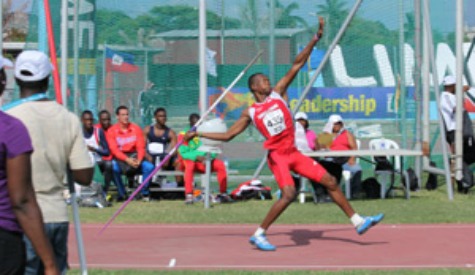 The man responsible for shaping Keshorn Walcott into an Olympic gold medallist, Cuban throws coach Ismael Lopez, says there is no limit to the heights the talented teenager can attain.
The man responsible for shaping Keshorn Walcott into an Olympic gold medallist, Cuban throws coach Ismael Lopez, says there is no limit to the heights the talented teenager can attain.
"His best quality is dedication, so we can achieve anything. Wow. I feel very happy. I'm very proud of Keshorn. I don't have words to describe."
Walcott became only the second Trinidad and Tobago athlete in Olympic history to strike gold, when he won the men's javelin with an 84.58 metres throw, at the Olympic Stadium, here in London, England, on Saturday.
Walcott's winning throw was a 1.75-metre improvement on his pre-Olympic personal best—82.83m. The 84.58m effort is a new Pan American junior (under-20) and national senior record. It lifted Walcott into second spot on the all-time global under-20 list, behind Latvia's Zigismunds Sirmais, the world junior record holder at 84.69m.
Lopez told the Express he was not surprised by Walcott's London 2012 performance.
"For me, I expected the junior world record. We were working at making his first throw relaxed. If the first throw is good, it makes things easier."
As planned, Walcott was relaxed for his first round effort, throwing the javelin 83.51m. In round two, he improved to 84.58m—the throw that would earn T&T its first taste of Olympic gold since Hasely Crawford's men's 100m triumph in 1976.
Dexter Voisin, the T&T track and field manager at London 2012, said that Walcott's triumph could not have been anticipated.
"It was a surprise to anybody. I sat among European coaches and saw amazement in their faces.
"This shows that once you put your mind to something and stick to the game plan, you can achieve anything. Keshorn is a very disciplined guy, takes training very seriously, listens to his coach, and has a strong mind. He's the ideal athlete."
T&T chef de mission, Annette Knott, also praised the 19-year-old Toco thrower.
"Quiet confidence. He works hard, without any fuss."
Walcott has had an arduous but highly rewarding season, striking gold at the Carifta Games, the Central American and Caribbean (CAC) Junior Championships, World Junior Championships, and now the Olympic Games.
Lopez said his athlete will now get a well-deserved rest, before beginning preparations for the 2013 season.
"We have to take care of him. Keshorn was invited to two meets in Europe, but he'll go home. For him, the season is finished."
Walcott's main focus in 2013 will be the World Championships, in Moscow, Russia. Hitting the 90-metre mark is also among the thrower's goals for next season.
Lopez said he is looking forward to the continued support of the Sports Company of Trinidad and Tobago (sportt).
"I'm grateful for the camp in Cuba in April and May that they paid for. It made a big difference in Keshorn's preparations."
He said the pre-Olympic camp in Cardiff, Wales, was beneficial as well.
"It had all the facilities, everything, and played a key part in Keshorn's performance."
While Walcott has a rare gift for hurling the spear, Lopez is convinced there are other potential Olympic champions in T&T waiting to be discovered.
"There are more like him, but something needs to be in place to develop field events. We need facilities. The throwers and jumpers cannot always train at the Hasely Crawford Stadium. Because of football games, the field is not always available. A field events facility is needed."
Lopez said throwing talent abounds in both Toco and Tobago.
"You have to look long-term. Start at 12/13. At that age, you have the time to teach different skills for throws. At age 15/16, the athletes can specialise in a particular throw."
If Lopez has his way, the Walcott win—arguably the biggest surprise of London 2012—will not be a one-off occurrence never to be repeated, but rather, the first of many global field successes for a nation that has built its Olympic reputation on the track.
By Keshorn Walcott
Source: www.trinidadexpress.com


 The curtain may have come down on what has been hailed as the 'greatest ever' Games, but the celebrations are far from over as fans across the globe came out in their thousands to welcome home their 2012 Olympic heroes.
The curtain may have come down on what has been hailed as the 'greatest ever' Games, but the celebrations are far from over as fans across the globe came out in their thousands to welcome home their 2012 Olympic heroes.


 From the Champs-Elysees in Paris to Piarco in the Caribbean islands of Trinidad and Tobago, the world's sporting stars were met with incredible scenes as supporters in their home nations flooded airports and city streets to honour their athletes' achievements at the London Games.
From the Champs-Elysees in Paris to Piarco in the Caribbean islands of Trinidad and Tobago, the world's sporting stars were met with incredible scenes as supporters in their home nations flooded airports and city streets to honour their athletes' achievements at the London Games.
 When javelin thrower Keshorn Walcott was promised the cheque when he landed in Trinidad and Tobago, along with a luxury home and roughly 20,000 square feet of land near his hometown.
When javelin thrower Keshorn Walcott was promised the cheque when he landed in Trinidad and Tobago, along with a luxury home and roughly 20,000 square feet of land near his hometown. Prime Minister Kamla Persad-Bissessar lavished Walcott with gifts and praise on Monday as thousands of fans dressed in the national colours of red, black and white arrived at Piarco International Airport to greet the young athlete.
Prime Minister Kamla Persad-Bissessar lavished Walcott with gifts and praise on Monday as thousands of fans dressed in the national colours of red, black and white arrived at Piarco International Airport to greet the young athlete.






 Other dignitaries from countries all over the world turned out to greet the returning athletes, including Algeria's sports minister Hachemi Dijar, who was there to greet the country's only medal winner
Other dignitaries from countries all over the world turned out to greet the returning athletes, including Algeria's sports minister Hachemi Dijar, who was there to greet the country's only medal winner 

 Nasser al-Attiyah took bronze in the skeet men's final in the shooting at London 2012, while high jumper Mutaz Essa Barshim also returned to Qatar decorated with a bronze medal.
Nasser al-Attiyah took bronze in the skeet men's final in the shooting at London 2012, while high jumper Mutaz Essa Barshim also returned to Qatar decorated with a bronze medal. Rio mayor Eduardo Paes waved the flag, which is emblazoned with the five Olympic rings, as he and other officials disembarked from their flight back from London.
Rio mayor Eduardo Paes waved the flag, which is emblazoned with the five Olympic rings, as he and other officials disembarked from their flight back from London. 'Rio is a city that spent the lion's share of its history, much more time than it should have, looking towards the past. I'm sure that this process of transformation, this turning toward the future, has been consolidated here.'
'Rio is a city that spent the lion's share of its history, much more time than it should have, looking towards the past. I'm sure that this process of transformation, this turning toward the future, has been consolidated here.'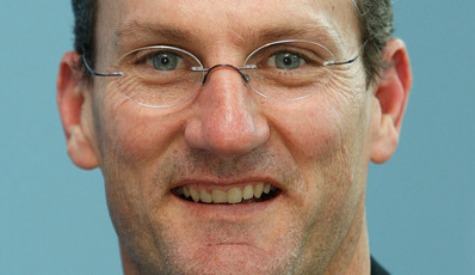 Experts are divided on the path to future Olympic glory, with one saying New Zealand can't afford to enter an international funding "arms race".
Experts are divided on the path to future Olympic glory, with one saying New Zealand can't afford to enter an international funding "arms race". The man responsible for shaping Keshorn Walcott into an Olympic gold medallist, Cuban throws coach Ismael Lopez, says there is no limit to the heights the talented teenager can attain.
The man responsible for shaping Keshorn Walcott into an Olympic gold medallist, Cuban throws coach Ismael Lopez, says there is no limit to the heights the talented teenager can attain.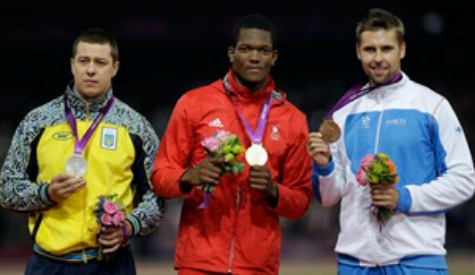 A truly memorable Olympic Games came to an end yesterday here in London, England, with T&T still celebrating its four medals—one gold and three bronze. Keshorn Walcott, in his debut, created the frenzy when he inspired T&T’s second-ever Olympic gold medal with a spectacular performance in the in the Men’s Javelin. Walcott’s tremendous feat later inspired the local 4x100 metres relay team of Richard Thompson, Keston Bledman, Emmanuel Callender and Marc Burns, to third place. It was also a special occasion for another debutant Lalonde Gordon, who picked up two bronze medals, first in the individual 400m, before combining with Jarrin Solomon, Deon Lendore and Ade Alleyne-Forte in the 4x400m relay final. T&T was not the only Caribbean country in a celebratory mode, as triple-gold medallist Usain Bolt led the Jamaican contingent which surely had a lot to cheer about, as well as Kirani James’ Grenada and Chris Brown’s Bahamas. Jamaica’s overall medal tally was 12—four gold, four silver and four bronze while James gave Grenada its first medal at the Games in the 400m, and Bahamas topped the 4x400m, a beautiful ending for the Caribbean.
A truly memorable Olympic Games came to an end yesterday here in London, England, with T&T still celebrating its four medals—one gold and three bronze. Keshorn Walcott, in his debut, created the frenzy when he inspired T&T’s second-ever Olympic gold medal with a spectacular performance in the in the Men’s Javelin. Walcott’s tremendous feat later inspired the local 4x100 metres relay team of Richard Thompson, Keston Bledman, Emmanuel Callender and Marc Burns, to third place. It was also a special occasion for another debutant Lalonde Gordon, who picked up two bronze medals, first in the individual 400m, before combining with Jarrin Solomon, Deon Lendore and Ade Alleyne-Forte in the 4x400m relay final. T&T was not the only Caribbean country in a celebratory mode, as triple-gold medallist Usain Bolt led the Jamaican contingent which surely had a lot to cheer about, as well as Kirani James’ Grenada and Chris Brown’s Bahamas. Jamaica’s overall medal tally was 12—four gold, four silver and four bronze while James gave Grenada its first medal at the Games in the 400m, and Bahamas topped the 4x400m, a beautiful ending for the Caribbean.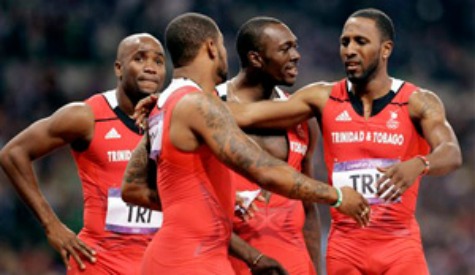 The men's javelin gold won by Keshorn Walcott at the Olympic Games, here in London, England, combined with the three bronze medals secured on the track, earned Trinidad and Tobago joint 47th spot on the medal table, with Uzbekistan.
The men's javelin gold won by Keshorn Walcott at the Olympic Games, here in London, England, combined with the three bronze medals secured on the track, earned Trinidad and Tobago joint 47th spot on the medal table, with Uzbekistan.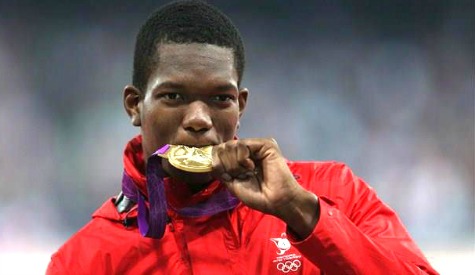 Keshorn Walcott’s gold medal may have been the biggest surprise of the Olympic Games in London, England. Yesterday, Walcott shocked everyone at Olympic Stadium when his second throw of 84.58 metres topped the Men’s Javelin event, less than a month after he became the world junior champion. He astonished himself also, saying, “I’m surprised I even made the final. I just went out there to relax and enjoy it and it worked out. “It means everything to me. This is what it’s all about.” Walcott, from Toco, pushed T&T’s medal count to three before the men’s 4x100m relay team of Richard Thompson, Keston Bledman, Emmanuel Callender and Marc Burns added a bronze medal to make it four—T&T’s best medal haul at an Olympic Games.
Keshorn Walcott’s gold medal may have been the biggest surprise of the Olympic Games in London, England. Yesterday, Walcott shocked everyone at Olympic Stadium when his second throw of 84.58 metres topped the Men’s Javelin event, less than a month after he became the world junior champion. He astonished himself also, saying, “I’m surprised I even made the final. I just went out there to relax and enjoy it and it worked out. “It means everything to me. This is what it’s all about.” Walcott, from Toco, pushed T&T’s medal count to three before the men’s 4x100m relay team of Richard Thompson, Keston Bledman, Emmanuel Callender and Marc Burns added a bronze medal to make it four—T&T’s best medal haul at an Olympic Games.